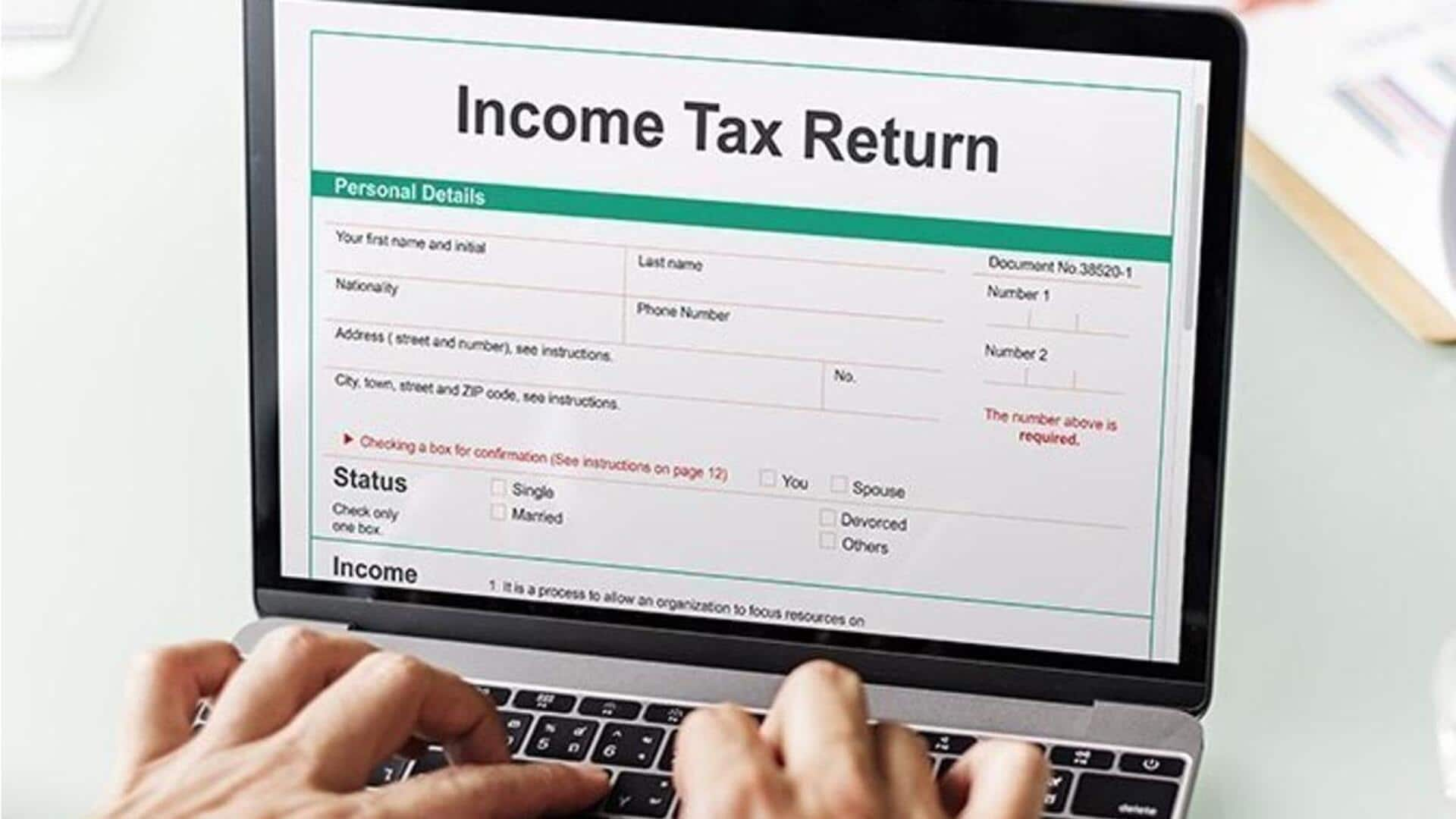
Waiting for ITR refund? Here's how long it may take
What's the story
An Income Tax Refund (ITR) is issued by the Income Tax Department when you've overpaid your taxes. This overpayment can occur due to excess Tax Deducted at Source (TDS), Tax Collected at Source (TCS), Advance Tax, or Self-Assessment Tax compared to your actual tax liability after considering all deductions and exemptions for the financial year. The tax department begins processing your refund only after you've electronically verified your ITR. Here's a breakdown of the processing timeline and factors affecting it.
Expected timeline
Taxpayers can expect ITR refunds within 4-5 weeks of processing
Typically, taxpayers can expect to receive their ITR refunds within 4-5 weeks of processing, as per the Income Tax Department's website. However, this timeframe is an estimate and can vary significantly. With over 8.14 crore ITRs filed in the previous year and an anticipated increase for AY 2024-25, the Income Tax Department has streamlined the refund process through automation and data analytics. However, concerns remain about unpredictable ITR processing times and refund disbursements due to several factors.
Processing challenges
Factors contributing to unpredictable ITR processing times
The unpredictability of ITR processing times and refund disbursements for AY 2024-25 can be attributed to an expanding taxpayer base that puts pressure on the processing capacity of the Income Tax Department and complex tax laws necessitating manual verification. Double-check your ITR for any errors or discrepancies. Mistakes can delay your refund. System updates and upgrades can slow down processing speeds, while rigorous checks to prevent fraudulent claims can lead to increased processing times.
Taxpayer guidance
Impact and advice for taxpayers awaiting refunds
Delayed refunds can disrupt cash flow and complicate budgeting. Uncertainty about refund availability can also influence investment decisions. To ensure timely receipt of refunds, taxpayers are advised to submit accurate and complete returns, use e-verification for faster processing, regularly track refund status on the Income Tax portal, maintain enough emergency funds, and seek advice from a tax specialist for complex tax matters.